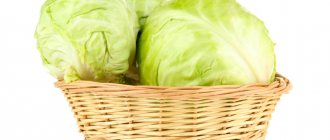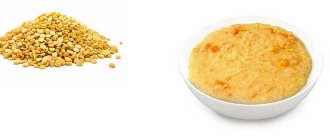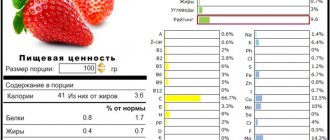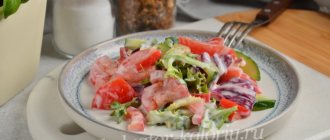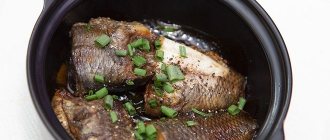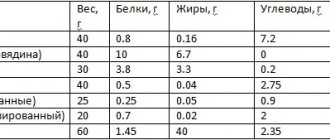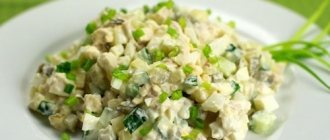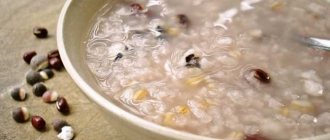How is it useful?
Greek salad is a traditional dish of Mediterranean cuisine that has gained considerable popularity. Despite the simplicity of its preparation, it has wonderful taste and is good for our health.
The recipe for this dish includes products such as cucumbers, sweet peppers, tomatoes, and lettuce. These vegetables are a rich source of dietary fiber and fiber, which are beneficial for digestion. Romaine and Iceberg lettuce leaves contain folic acid, which is involved in the body's synthesis of endorphins - happiness hormones. In ancient times, Romaine lettuce was considered a cure for many ailments. It really has a huge number of useful qualities.
This dish is seasoned with olive oil, which provides our body with vitamin E and other natural antioxidants. Olive oil helps prevent the development of diabetes, obesity, cardiovascular diseases and gastrointestinal diseases. Olive oil is also used to speed up the healing of ulcers, cuts and other injuries.
Olives have a beneficial effect on the condition of the liver, cleanse it and improve its functions.
Greek Feta cheese, made from goat or sheep milk, contains a number of beneficial microorganisms. Of these, it is worth noting bacteria that fight pathogenic agents, for example, listeria - one of the most dangerous bacteria that causes digestive disorders.
Basil, as a spice, has a positive effect on the nervous system and is a natural antiseptic. Basil relaxes muscles, helps get rid of pain in them after heavy exertion, relieve nervous tension, and strengthen memory.
Balsamic vinegar is a natural antioxidant.
How to cook Greek salad - recipe
Thanks to the most common Chinese cabbage, this salad becomes much juicier and more nutritious. In addition, the beneficial properties of the vegetable largely exceed those for which lettuce leaves are famous.
You will need:
- 150 gr. Feta cheese;
- 300 gr. Chinese cabbage;
- 4 tomatoes;
- 2 cucumbers;
- 100 gr. olives;
- 1/2 lemon;
- 1 onion;
- 5 tbsp. l. olive oils;
- 1/4 tbsp. l. salt;
- 1/4 tsp. ground pepper;
- 1/3 tsp. oregano;
- 1 sweet pepper.
How to cut Greek salad:
- Be sure to wash the Chinese cabbage, dry it, and then chop it into pieces by hand.
- Wash cucumbers, tomatoes and peppers.
- Remove stems from peppers and tomatoes. Cut all vegetables into pieces.
- Remove the olives from the jar.
- Peel the onion and chop it.
- Place all pre-prepared components in a salad bowl.
- Squeeze the juice from half a lemon onto the ingredients of the dish, pour in the oil, add spices and stir.
We also advise you to pay attention to the article - recipes for preparing vegetarian Caesar.
How many calories are in Greek salad?
Here's how much:
Let's prepare it with this recipe:
Products:
- Feta - 200 gr. — (580 kcal)
- Tomatoes – 2 pieces – (40 kcal)
- Cucumbers – 1 piece – (19 kcal)
- Bell pepper (yellow) – 1 piece – (27 kcal)
- Onions (preferably red) - 1 piece - (45 kcal)
- Lemon juice (required) - from half a lemon - (8 kcal)
- Olives (pitted) - 80 gr. — (92 kcal)
- Lettuce leaves - 50 g. - (7 kcal)
- Olive oil - 3 tbsp. — (269 kcal)
- Parsley
- Salt and black pepper (ground) - to taste
First - preparing the products. Cucumber, tomatoes, peppers, lemon and lettuce are washed. Lettuce leaves are torn coarsely by hand. Cut sweet peppers, cucumbers and tomatoes coarsely. Cut the onion into half rings, then lightly knead. Feta cheese (you can use feta cheese) is cut into cubes (1x1 cm). Then add the olives. Salt it and pour olive oil over it. Add squeezed lemon juice to the salad and mix lightly.
To give the dish a beautiful appearance, you don’t have to stir the dish, but lay out the chopped components of the dish in parts.
Based on the posted recipe:
The calorie content of Greek salad with cheese and butter, per 100 grams, is:
Greek salad recipe. Calorie, chemical composition and nutritional value.
Nutritional value and chemical composition of “Greek salad”.
The table shows the nutritional content (calories, proteins, fats, carbohydrates, vitamins and minerals) per 100 grams of edible portion.
| Nutrient | Quantity | Norm** | % of the norm in 100 g | % of the norm in 100 kcal | 100% normal |
| Calorie content | 47.5 kcal | 1684 kcal | 2.8% | 5.9% | 3545 g |
| Squirrels | 2.3 g | 76 g | 3% | 6.3% | 3304 g |
| Fats | 2.9 g | 56 g | 5.2% | 10.9% | 1931 |
| Carbohydrates | 3.3 g | 219 g | 1.5% | 3.2% | 6636 g |
| Organic acids | 0.2 g | ~ | |||
| Alimentary fiber | 1 g | 20 g | 5% | 10.5% | 2000 g |
| Water | 89.1 g | 2273 g | 3.9% | 8.2% | 2551 g |
| Ash | 1.213 g | ~ | |||
| Vitamins | |||||
| Vitamin A, RE | 83.2 mcg | 900 mcg | 9.2% | 19.4% | 1082 g |
| Retinol | 0.006 mg | ~ | |||
| alpha carotene | 0.045 mcg | ~ | |||
| beta carotene | 0.465 mg | 5 mg | 9.3% | 19.6% | 1075 g |
| beta Cryptoxanthin | 0.095 mcg | ~ | |||
| Lycopene | 0.076 mcg | ~ | |||
| Lutein + Zeaxanthin | 1.716 mcg | ~ | |||
| Vitamin B1, thiamine | 0.034 mg | 1.5 mg | 2.3% | 4.8% | 4412 g |
| Vitamin B2, riboflavin | 0.052 mg | 1.8 mg | 2.9% | 6.1% | 3462 g |
| Vitamin B4, choline | 4.87 mg | 500 mg | 1% | 2.1% | 10267 g |
| Vitamin B5, pantothenic | 0.126 mg | 5 mg | 2.5% | 5.3% | 3968 g |
| Vitamin B6, pyridoxine | 0.046 mg | 2 mg | 2.3% | 4.8% | 4348 g |
| Vitamin B9, folates | 7.522 mcg | 400 mcg | 1.9% | 4% | 5318 g |
| Vitamin B12, cobalamin | 0.043 mcg | 3 mcg | 1.4% | 2.9% | 6977 g |
| Vitamin C, ascorbic acid | 15.12 mg | 90 mg | 16.8% | 35.4% | 595 g |
| Vitamin E, alpha tocopherol, TE | 0.167 mg | 15 mg | 1.1% | 2.3% | 8982 g |
| gamma tocopherol | 0.025 mg | ~ | |||
| Vitamin H, biotin | 0.457 mcg | 50 mcg | 0.9% | 1.9% | 10941 g |
| Vitamin K, phylloquinone | 23.5 mcg | 120 mcg | 19.6% | 41.3% | 511 g |
| Vitamin RR, NE | 0.4476 mg | 20 mg | 2.2% | 4.6% | 4468 g |
| Niacin | 0.352 mg | ~ | |||
| Betaine | 0.034 mg | ~ | |||
| Macronutrients | |||||
| Potassium, K | 190.64 mg | 2500 mg | 7.6% | 16% | 1311 g |
| Calcium, Ca | 73.16 mg | 1000 mg | 7.3% | 15.4% | 1367 g |
| Silicon, Si | 23.348 mg | 30 mg | 77.8% | 163.8% | 128 g |
| Magnesium, Mg | 13.35 mg | 400 mg | 3.3% | 6.9% | 2996 g |
| Sodium, Na | 191.99 mg | 1300 mg | 14.8% | 31.2% | 677 g |
| Sera, S | 28.29 mg | 1000 mg | 2.8% | 5.9% | 3535 g |
| Phosphorus, P | 68.7 mg | 800 mg | 8.6% | 18.1% | 1164 g |
| Chlorine, Cl | 263.52 mg | 2300 mg | 11.5% | 24.2% | 873 g |
| Microelements | |||||
| Aluminium, Al | 286.4 mcg | ~ | |||
| Bor, B | 61.6 mcg | ~ | |||
| Vanadium, V | 16.42 mcg | ~ | |||
| Iron, Fe | 0.603 mg | 18 mg | 3.4% | 7.2% | 2985 g |
| Yod, I | 2.83 mcg | 150 mcg | 1.9% | 4% | 5300 g |
| Cobalt, Co | 3.382 mcg | 10 mcg | 33.8% | 71.2% | 296 g |
| Lithium, Li | 14.783 mcg | ~ | |||
| Manganese, Mn | 0.2333 mg | 2 mg | 11.7% | 24.6% | 857 g |
| Copper, Cu | 105.17 mcg | 1000 mcg | 10.5% | 22.1% | 951 g |
| Molybdenum, Mo | 4.325 mcg | 70 mcg | 6.2% | 13.1% | 1618 g |
| Nickel, Ni | 5.641 mcg | ~ | |||
| Rubidium, Rb | 95 mcg | ~ | |||
| Selenium, Se | 1.308 mcg | 55 mcg | 2.4% | 5.1% | 4205 g |
| Strontium, Sr | 2.26 mcg | ~ | |||
| Fluorine, F | 18.57 mcg | 4000 mcg | 0.5% | 1.1% | 21540 g |
| Chromium, Cr | 4.92 mcg | 50 mcg | 9.8% | 20.6% | 1016 g |
| Zinc, Zn | 0.4318 mg | 12 mg | 3.6% | 7.6% | 2779 g |
| Zirconium, Zr | 1.81 mcg | ~ | |||
| Digestible carbohydrates | |||||
| Starch and dextrins | 0.082 g | ~ | |||
| Mono- and disaccharides (sugars) | 2.7 g | max 100 g | |||
| Galactose | 0.001 g | ~ | |||
| Glucose (dextrose) | 0.554 g | ~ | |||
| Sucrose | 0.345 g | ~ | |||
| Fructose | 0.473 g | ~ | |||
| Essential amino acids | 0.117 g | ~ | |||
| Arginine* | 0.026 g | ~ | |||
| Valin | 0.021 g | ~ | |||
| Histidine* | 0.007 g | ~ | |||
| Isoleucine | 0.016 g | ~ | |||
| Leucine | 0.024 g | ~ | |||
| Lysine | 0.023 g | ~ | |||
| Methionine | 0.007 g | ~ | |||
| Methionine + Cysteine | 0.009 g | ~ | |||
| Threonine | 0.017 g | ~ | |||
| Tryptophan | 0.004 g | ~ | |||
| Phenylalanine | 0.016 g | ~ | |||
| Phenylalanine+Tyrosine | 0.028 g | ~ | |||
| Nonessential amino acids | 0.173 g | ~ | |||
| Alanin | 0.015 g | ~ | |||
| Aspartic acid | 0.029 g | ~ | |||
| Glycine | 0.014 g | ~ | |||
| Glutamic acid | 0.069 g | ~ | |||
| Proline | 0.013 g | ~ | |||
| Serin | 0.013 g | ~ | |||
| Tyrosine | 0.015 g | ~ | |||
| Cysteine | 0.005 g | ~ | |||
| Sterols (sterols) | |||||
| Cholesterol | 0.85 mg | max 300 mg | |||
| Phytosterols | 5.338 mg | ~ | |||
| Saturated fatty acids | |||||
| Saturated fatty acids | 0.3 g | max 18.7 g | |||
| 16:0 Palmitinaya | 0.201 g | ~ | |||
| 18:0 Stearic | 0.058 g | ~ | |||
| Monounsaturated fatty acids | 0.649 g | min 16.8 g | 3.9% | 8.2% | |
| 16:1 Palmitoleic | 0.003 g | ~ | |||
| 18:1 Oleic (omega-9) | 0.632 g | ~ | |||
| 18:1 cis | 0.002 g | ~ | |||
| 20:1 Gadoleic (omega-9) | 0.011 g | ~ | |||
| Polyunsaturated fatty acids | 1.799 g | from 11.2 to 20.6 g | 16.1% | 33.9% | |
| 18:2 Linolevaya | 1.503 g | ~ | |||
| 18:3 Linolenic | 0.295 g | ~ | |||
| 18:3 Omega-3, alpha-linolenic | 0.001 g | ~ | |||
| 20:3 Eicosatriene | 0.001 g | ~ | |||
| Omega-3 fatty acids | 0.3 g | from 0.9 to 3.7 g | 33.3% | 70.1% | |
| Omega-6 fatty acids | 1.5 g | from 4.7 to 16.8 g | 31.9% | 67.2% |
The energy value of Greek salad is 47.5 kcal.
- Serving = 100 g (47.5 kcal)
Primary Source: Created in the application by the user. Read more.
** This table shows the average levels of vitamins and minerals for an adult. If you want to know the norms taking into account your gender, age and other factors, then use the “My Healthy Diet” application.
Greek salad for weight loss:
If you are a fan of Greek cuisine, primarily their most famous dishes, then you should be interested in the Greek salad diet. It gives excellent results, but at the same time it cannot be classified as a mono-diet, because the diet is balanced and provides our body with at least a minimum of all the necessary vitamins and microelements. In addition, this diet contains enough protein, so it does not affect muscle tone. But carbohydrates are limited in the system, especially fast ones. Instead, you will eat a lot of fiber that is beneficial for your figure.
Any low-carb nutrition system gives excellent results, because we gain weight not from fat, as many people think, but from carbohydrates. It is this component of food that becomes the main source of energy. The glucose we get from carbohydrates powers many biological processes. The problem is that due to bad eating habits, the average person's diet usually contains too many carbohydrates. Our body receives more energy from them than it needs, so part of the “fuel” goes into reserve and accumulates in the form of fat cells.
The classic version of Greek salad does not use rich sources of carbohydrates. However, this is not to say that this nutrient is not present at all. Vegetables are also a source of carbohydrates, but only slow and difficult to digest. The energy from such food enters the body gradually, creating a long-lasting feeling of fullness and giving us strength for various daily activities.
In addition to healthy carbohydrates, this dish also contains healthy fats. They are extremely necessary when losing weight. Fats are largely responsible for human health. This especially applies to the female half of the population. Without healthy polyunsaturated fats, hair, nails and even skin suffer greatly, and the reproductive cycle is disrupted.
However, the diet places greater emphasis on proteins, especially of animal origin. They have a lot of connective tissue, due to which such food is digested more slowly. The result is a prolonged feeling of satiety and a general reduction in caloric intake.
Greek salad prepared at home with feta cheese
A salad with so many ingredients can easily be classified as dietary. There are very few calories in the treat, and therefore the dish is an excellent assistant in the process of losing weight.
You will need:
- 250 gr. tomatoes;
- 250 gr. cucumbers
- 1 onion;
- 100 gr. feta cheese;
- 200 gr. lettuce leaves;
- 80 gr. olives;
- 2 tbsp. l. olive oils;
- 1/2 lemon;
- 2 tbsp. l. soy sauce;
- 1/4 tsp. Sahara.
Greek salad step by step:
- Wash the tomatoes and cucumbers and chop them into very large pieces.
- Rinse the lettuce leaves and tear them with your hands.
- Cut the cheese into large cubes or break into pieces.
- Remove the olives from the jar.
- Combine all products in a salad bowl.
- Greek salad dressing recipe: mix soy sauce with oil, freshly squeezed lemon juice and sugar.
- Serve the sauce separately from the salad itself.
An excellent alternative to this dish is dietary olivier, which is not difficult to prepare and does not take much time.
Light Greek salad diet
Of course, no one can determine the exact ideal of beauty, but since ancient times it has been believed that the healthiest and strongest people live in Greece.
Perhaps it’s all about genetics or a predisposition to a sports lifestyle, but nutrition also plays a big part - this is where the well-known light Greek salad originated. Its benefits are obvious: the dish is prepared from products that together provide an excellent balance of fats, proteins, and carbohydrates, which is very important for humans. Culinary experts all over the world note that national Greek dishes are so well thought out that it is simply impossible to overeat. The Greeks know exactly which foods can be consumed and in what quantity, and which should be excluded as much as possible.
Of course, there are quite a few recipes for Greek salad. The cook is ready to share the most popular ones.
Is it possible to eat salad on a diet?
Greek salad is traditionally considered a fairly dietary dish. Its use is strongly encouraged by supporters of proper nutrition, and it itself is part of a large number of diets, including the Mediterranean diet, which is one of the most useful and effective today. What are its benefits for weight loss?
- The vegetables included in its composition are a valuable source of fiber and dietary fiber, which have an extremely beneficial effect on the digestion process.
- The olive oil with which it is seasoned saturates our body with vitamin E, which normalizes metabolism and prevents the aging process in the body.
- Olives help cleanse the body of toxins and waste.
- Cheese made from natural milk contains some beneficial microorganisms that help normalize the microflora in the intestines.
If you wish, you can also further reduce the calorie content of the dish you prepare by:
- Reducing the amount of oil for refueling . Less fat means fewer calories, everyone understands this. But in order not to lose any taste, try sprinkling the salad with olive oil from a regular spray bottle.
- Reduce the amount of cheese or replace it with a lower calorie one . If you want the consumption of this dish to be as “painless” as possible for your figure, choose cheese that has the fewest calories, say, suluguni. If you simply decide to reduce the amount of cheese, then 10 - 15 minutes before adding it to the salad, mix it with a small amount of chopped garlic, so it will be more “visible” in the dish.
Light Greek salad diet
Of course, no one can determine the exact ideal of beauty, but since ancient times it has been believed that the healthiest and strongest people live in Greece.
Perhaps it’s all about genetics or a predisposition to a sports lifestyle, but nutrition also plays a big part - this is where the well-known light Greek salad originated. Its benefits are obvious: the dish is prepared from products that together provide an excellent balance of fats, proteins, and carbohydrates, which is very important for humans. Culinary experts all over the world note that national Greek dishes are so well thought out that it is simply impossible to overeat. The Greeks know exactly which foods can be consumed and in what quantity, and which should be excluded as much as possible.
Of course, there are quite a few recipes for Greek salad. The cook is ready to share the most popular ones.
Greek chef's version of salad
Ingredients
- Cheese cheese – 50 gr.
- Fresh cucumbers – 3 pcs.
- Non-meaty tomatoes – 3 pcs.
- Canned olives – 25 or 30 pcs. (you can’t spoil the salad with olives).
- Olive oil (preferably cold pressed) – 1 steel.
- Parsley, dill and a couple of cilantro leaves.
Preparation
- We wash the vegetables under running water.
- Cut cheese, cucumbers and tomatoes into cubes.
- Olives - in rings.
- Finely chop the greens.
- Place all the products in a bowl, add salt, season with olive oil and mix.
The most delicious salad is a freshly prepared one. It is better to serve it on the table before the vegetable juice begins to stand out.
You can add onions, lemon slices, lettuce, and ground black pepper to the dish. Bryndza is sometimes replaced with Feta cheese, preferably made from sheep's milk. They taste similar, and the calorie content is not too different.
Greek chef's version of salad
Ingredients
- Cheese cheese – 50 gr.
- Fresh cucumbers – 3 pcs.
- Non-meaty tomatoes – 3 pcs.
- Canned olives – 25 or 30 pcs. (you can’t spoil the salad with olives).
- Olive oil (preferably cold pressed) – 1 steel.
- Parsley, dill and a couple of cilantro leaves.
Preparation
- We wash the vegetables under running water.
- Cut cheese, cucumbers and tomatoes into cubes.
- Olives - in rings.
- Finely chop the greens.
- Place all the products in a bowl, add salt, season with olive oil and mix.
The most delicious salad is a freshly prepared one. It is better to serve it on the table before the vegetable juice begins to stand out.
You can add onions, lemon slices, lettuce, and ground black pepper to the dish. Bryndza is sometimes replaced with Feta cheese, preferably made from sheep's milk. They taste similar, and the calorie content is not too different.

